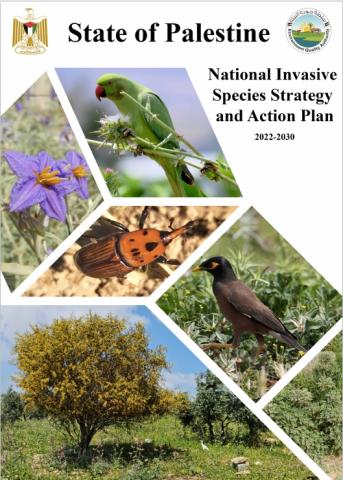
Excutive Summary:
Alien species (non-native, non-indigenous, foreign, exotic) refers to a species, subspecies, or lower taxon introduced outside of its natural range (past or present) and dispersal potential, for example, outside the range it occupies naturally or could not occupy without direct or indirect introduction or care by humans, and includes any part, gametes or propagule of such species that might survive and subsequently reproduce (IUCN 2000). Invasive Alien Species (IAS) have the ability to establish themselves quickly in disturbed areas, due to their eco-flexibility and strong ability to compete for existing resources causing negative impacts on biodiversity, human health, agriculture, and infrastructure. About half a million species are reported as invasive worldwide (Pimental et al., 2001). The invasiveness threat increased because of ease of transportation, and human habitat destruction that opens many avenues for invasive species to be established around the world. In fact, these invasive species are now considered the second most important threat to biodiversity, after direct habitat destruction by humans (Kettunen et al., 2008). Since 2015, Palestine ratified the Convention on Biological Diversity (CBD), therefore is committed to the global priorities, guidelines, information collection, and international coordination of IAS. Among these obligations is to set up a national strategy on IAS, develop legislations to prevent the introduction of new IAS and the spread and management of the already present IAS, carry out risk analysis, to make use of information and communication technology for carrying out risk communication, and provide infrastructure. Various approaches have been used to collect data on IAS including a desktop study, literature review, and field survey for different taxa including plants, birds, mulasca, and insects. We also investigated the status, pathways, vectors, eradication and control methods, and potential threats imposed by IAS. All collected data form the baseline for the team to prepare the First National Strategy for Mitigating the Threats of IAS in Palestine
